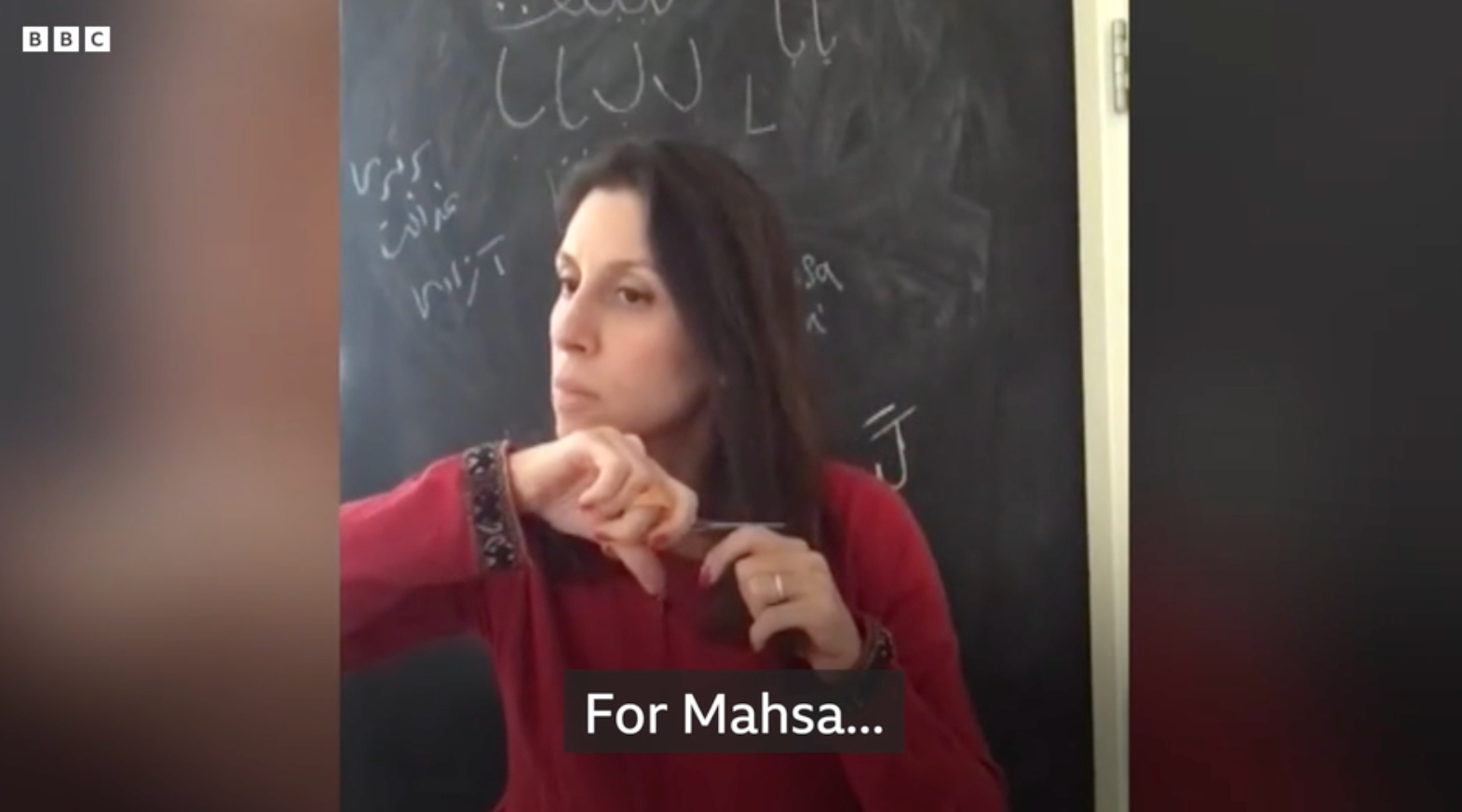Iran protests ‘bring back memories’ of helplessness of prison, says Nazanin Zaghari-Ratcliffe
The British-Iranian urged the UK to condemn human rights abuses in the country
Nazanin Zaghari-Ratcliffe said protests in Iran remind her of the helplessness she experienced during her six-year prison sentence in the country.
The British-Iranian said “the world cannot turn a blind eye to Iran” and the UK government “must act” over human rights abuses, as women and girls take to the country's streets in protest.
The widespread action was sparked after the death of 22-year-old Mahsa Amini last month while she was in the custody of the morality police in Tehran. She had been detained for allegedly not adhering to Iran's strict Islamic dress code, requiring women to cover their hair with a hijab.
Police claimed she went into cardiac arrest at a detention centre and died in hospital, but her family say that she died as a result of police brutality.
Speaking on Sky News, Ms Zaghari-Ratcliffe - who joined a movement of women cutting their hair in solidarity with Iran - said it “brings memories... of how helpless you are when you are in custody”, having spent six years imprisoned in Iran herself after being accused of plotting to overthrow the government.
“What has helped the Iranian regime sustain the way they are treating people is just the way they arrest you and they disconnect you from the rest of the world,” she said.
“So they put them in solitary confinement or they take you somewhere unknown and they break you emotionally.
“This is in my head every time I hear the news of somebody being arrested. I think about what I have gone through... imagining what they will be going through now."
Ms Zaghari-Ratcliffe said the protests were “very powerful” and “women [that] are coming to the streets are making history by their very existence”.
“It's not about violence, it's about peaceful protests - but also it's about presenting themselves to the world, so that they see us, we are here,” she added.
Thousands in Iran and elsewhere have taken to the street in protest against the nation’s morality police and treatment toward women. According to human rights groups, at least 133 protestors have been killed so far in Iran since demonstrations started into the 22-year-old’s death.
Protestors took to Trafalgar Square in central London last week where thousands held flags, sang protest songs and led chants against the current dictatorship in Iran and in support of women in the country.

Ms Amini was accused by police of breaking the country’s strict dress code, which says women must cover their hair and dress modestly when in public. After being detained, Iranian officials say she suffered a sudden heart attack but protesters allege she was beaten by police while in custody.
After three days in a coma, she died on 16 September - sparking protests in Iran and worldwide. Many in the country – including activists and journalists – have been arrested or killed following the unrest.
Now Ms Zaghari-Ratcliffe is demanding the UK government “observe, protect and act” over the human rights abuses in Iran, including introducing sanctions, and that she is “expecting Liz Truss to condemn what's happening” in the country. She added that protests are now more than about just wearing the hijab or not.
“If we talk about human rights, we have to act,” she added. “It's not just about talking, talk is cheap,” she said.
She continued: “If you're talking about [putting] our citizens and their rights as a priority, you have to really act - just talking about it doesn't solve my problem.”
Ms Zaghari-Ratcliffe was freed earlier this year after the UK government agreed to settle a £400m debt with Tehran dating from 1979.



Join our commenting forum
Join thought-provoking conversations, follow other Independent readers and see their replies
1Comments